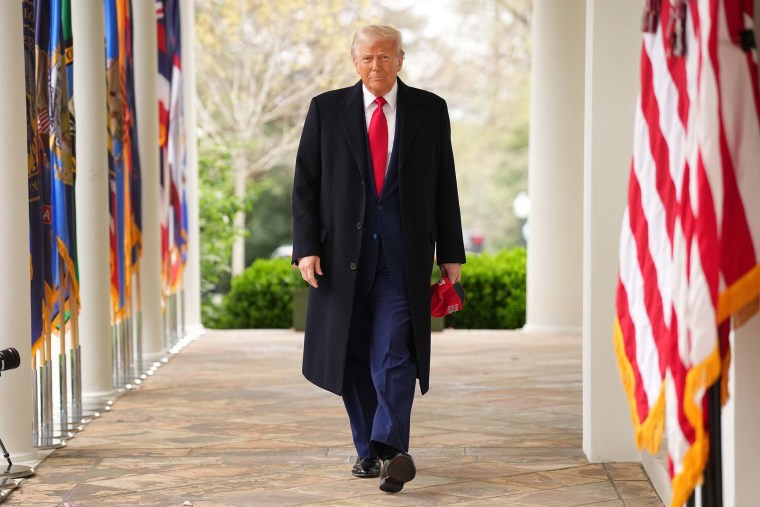
Trump's Reciprocal Tariffs Shake Global Trade and U.S. Economy
Today, former President Donald Trump made headlines with his long-anticipated announcement on reciprocal tariffs, a move that is sending shockwaves through global markets and trade relationships. In his speech from the White House Rose Garden, Trump laid out his plan to impose steep tariffs on imported goods, with rates varying by country. The goal, according to Trump, is to counter the existing trade barriers imposed by other nations on U.S. exports, including tariffs, currency manipulation, and what he calls "nonmonetary barriers."
These new tariffs are set to have significant consequences for the global economy. The tariff rates, which range from 10% to as high as 49%, are expected to impact billions—possibly trillions—of dollars in trade. Some of the hardest-hit countries include China, facing a 34% tariff, the European Union at 20%, India at 26%, and Japan at 24%. The impact of these tariffs is already being felt in the financial markets, with U.S. stock indices experiencing sharp declines. The S&P 500 futures dropped by 1.5% in after-hours trading, while the Nasdaq 100 fell by over 3%, signaling investor concerns over potential economic instability.
Also Read:- Milan and Inter Draw in Intense Coppa Italia Semi-Final First Leg
- Investors Panic as U.S. Stock Market Plummets Over Trump’s Tariff Plan
Economic analysts are warning that these tariffs could lead to a global recession. According to Olu Sonola, head of U.S. economic research at Fitch Ratings, the new tariff policies may push many countries into economic downturns. The U.S. tariff rate on all imports has now surged to around 22%, a level not seen since 1910. Sonola stated, "This is a game changer, not only for the U.S. economy but for the global economy. Many countries will likely end up in a recession."
The policy has drawn mixed reactions from various sectors. While some domestic manufacturers support the move, arguing it will protect American jobs and industries, consumer advocacy groups and economists are raising alarms about the potential for price hikes on everyday goods. Lori Wallach, director of Rethink Trade, called on Trump to prevent corporations from using these tariffs as an excuse to raise prices unfairly on American consumers. The National Foreign Trade Council echoed these concerns, warning that the tariffs could result in higher prices for groceries, home renovations, and auto insurance.
International leaders have also responded with strong reactions. Poland’s Prime Minister Donald Tusk suggested "adequate decisions" were needed, while Italian Prime Minister Giorgia Meloni, despite her close ties to Trump, criticized the tariffs as "wrong" and damaging to economic relations between the U.S. and Europe. Treasury Secretary Scott Bessent confirmed that China would now face an effective tariff rate of 54%, including the newly imposed 34% rate and an existing 20% from earlier in Trump's administration.
The fallout from these tariffs is expected to be widespread, affecting multiple industries, from automotive to technology. Trump’s new policy includes a 25% tariff on all foreign-made automobiles starting at midnight, which has already prompted automakers like Volkswagen to place "import fee" notices on vehicles. With supply chains in limbo and markets in turmoil, economic experts fear that the effects of these tariffs will ripple through multiple sectors, leading to higher costs for businesses and consumers alike.
As the world watches the unfolding developments, one thing is certain: these tariffs are poised to reshape the global economic landscape. The coming weeks will reveal whether this bold move will protect American industries or trigger economic turmoil both at home and abroad.
Read More:


0 Comments